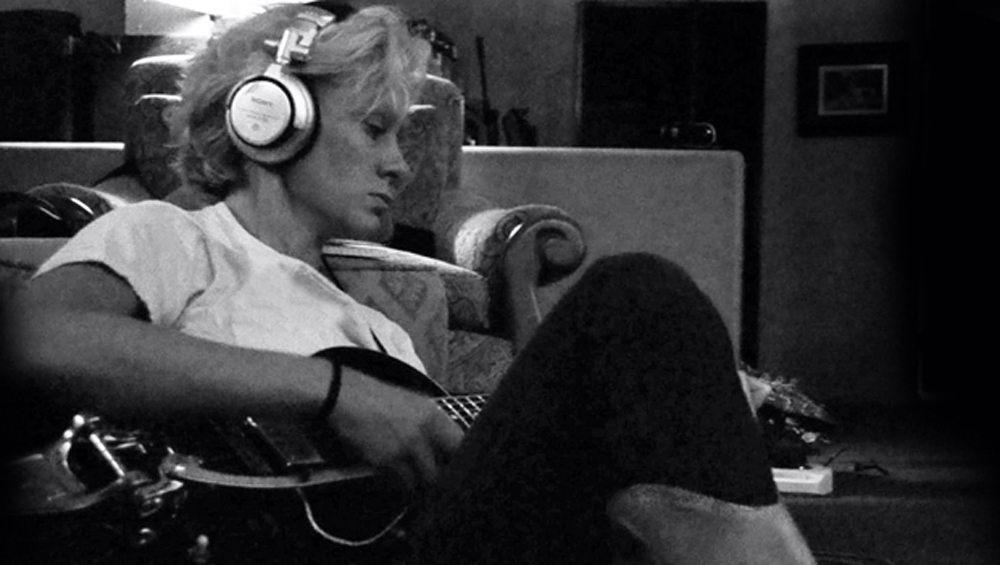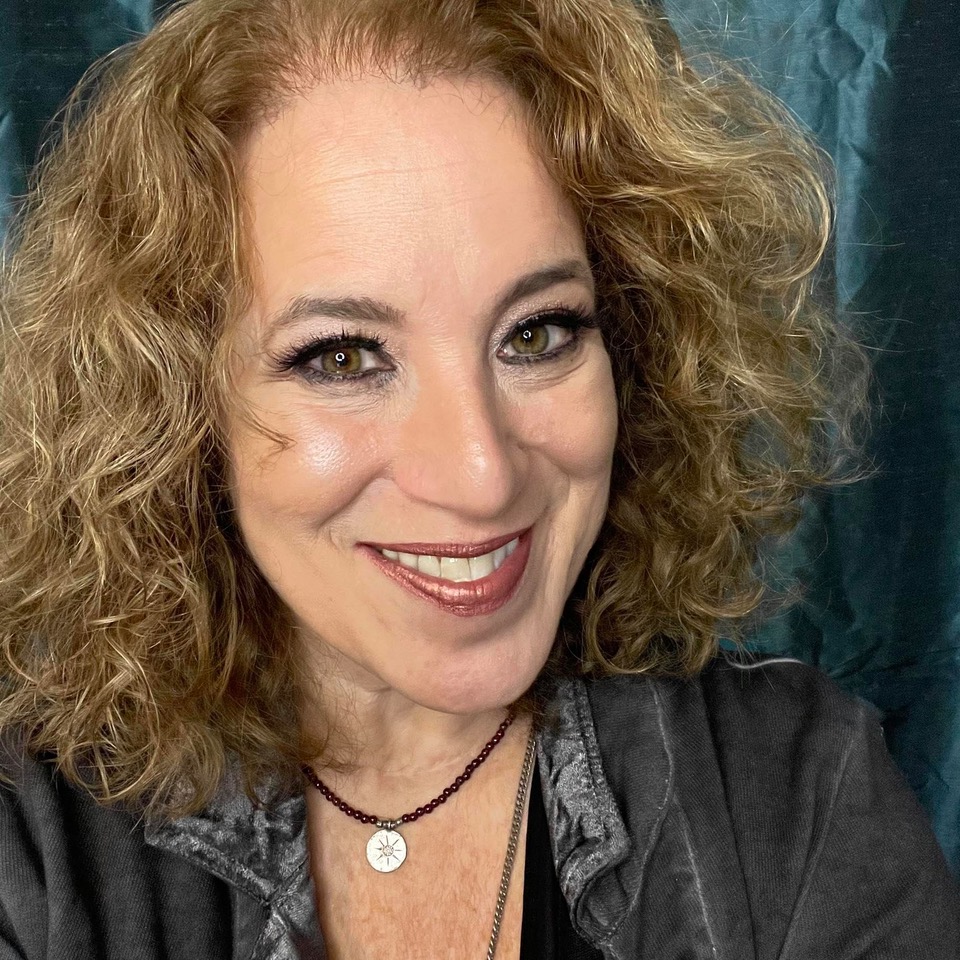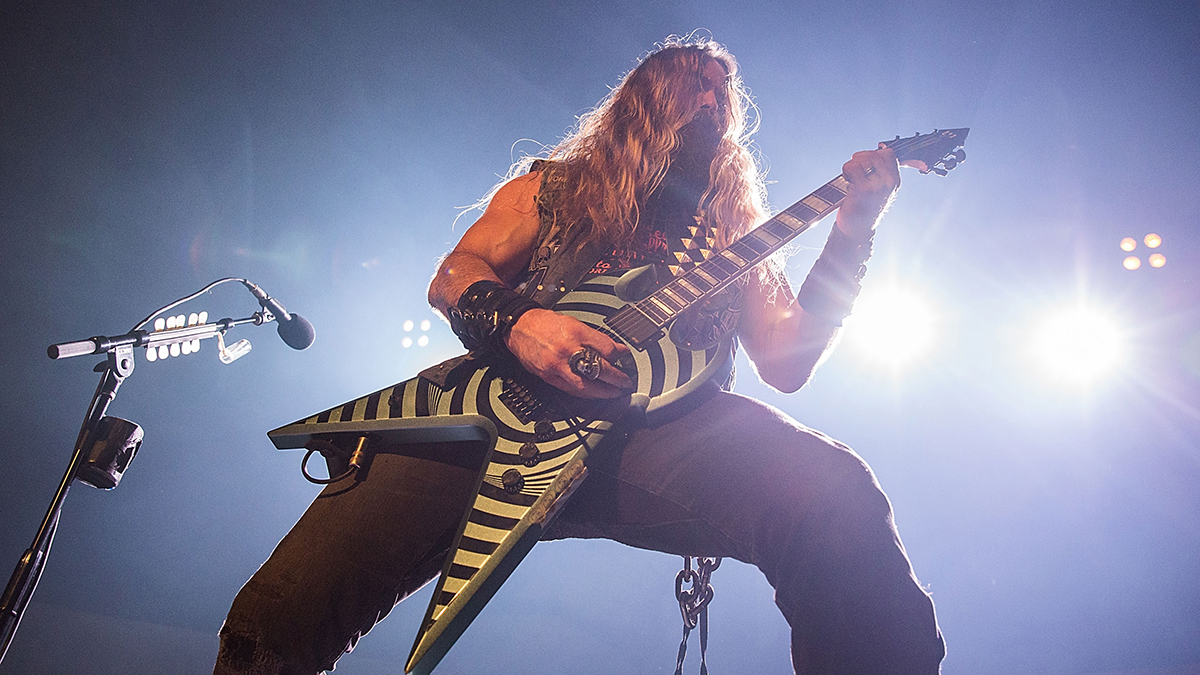Interview: Shelby Lynne Discusses Her New Album, 'Revelation Road'
All the latest guitar news, interviews, lessons, reviews, deals and more, direct to your inbox!
You are now subscribed
Your newsletter sign-up was successful

Shelby Lynne doesn’t want to talk. Not about gear, not about songs, not about the why, when and how.
She just wants you to listen and draw your own conclusions. But my first pass through her new, aptly titled album, Revelation Road, left me with a million questions!
Her production is stark, not to mention mesmerizing and jarring at the same time. And it’s no wonder. Lynne literally secluded herself in her own studio and wrote and recorded every instrument and line on her own. Revelation Road finds Lynne facing her demons and coming out of the room with a collection of songs that are sadly beautiful, creatively performed and surprisingly catchy.
My favorite of the 11 tracks is “I’ll Hold Your Head,” which at first appears to be an old-time reminiscence, but on closer inspection reveals experiences from a dark childhood. Its flangy, wavy guitars intensify the song’s oddly disturbing contrasts. And yet, I’ve been singing the hook in the shower …
A little background: Lynne was awarded the Grammy for Best New Artist in 2000 after the release of I Am Shelby Lynne. She made her acting debut in 2005, playing Johnny Cash's mother in the motion picture Walk the Line. Lynne recently founded her own label, Everso Records, and Tears, Lies, And Alibis, the label’s first release, debuted at No. 16 on Billboard’s Top Independent Albums chart in April 2010. Revelation Road is slated for release Tuesday, October 18.
I did manage to draw out a few comments from the songstress herself. Here are some revelations from Lynne on Revelation Road.
I know you recorded the whole album in its entirety by yourself. Did you share any of the tracks with anyone as you were working on them?
All the latest guitar news, interviews, lessons, reviews, deals and more, direct to your inbox!
I played them for people in my life, but it doesn’t really have anything to do with the production part of it. I do that by myself.
What made you go in that direction? Did you want to challenge yourself, or was it just that you didn’t really feel like you wanted to bring anyone else into this project?
No, it wasn’t that. I just thought, "Why not? I’m here."
Were there any unforeseen challenges that came up as you were working in that way?
Yeah, it was all a challenge. I never had planned on doing anything like that. It just kind of happened day by day. I just had fun and tried not to do anything too crazy, ‘cause I’m not a virtuoso at any instrument. I just let the music guide me. And kept it really simple.
Yeah, I like that you added some quirky things in there – little shakers and percussive elements ...
Yeah, there’s nothing fancy. It’s not a fancy record, by any means. It’s just a real fun moment in my life.
Let’s talk about your production a little bit more. I noticed that you played around a lot with flanges and reverbs and dry-wet signal contrasts. Can you talk a little bit about that?
Well, I just let the song call out what it needed. I like so many different kinds of records. I like folk records that are just guitar and vocals. And I love ELO. I tried to bring in all the influences that I love into my record and just see what happens. But none of it is really thought out. I don’t spend a lot of time thinking about production, because, well, I think you should be serious about your art but not be taking yourself too seriously.
On your song “I’ll Hold Your Head,” I had to listen to it a few times, because at first I thought the guitar was out of tune, honestly. I was like, "Wow! What’s going on with the guitar there?" And then I realized it was the flange that you use, and I find that really interesting. Did you think about that at all when you did that or was it just something that happened?
I don’t think about any of it.
Just a "go with your gut" kind of thing?
My ears.
Can we talk a little about your gear setup? What guitars do you use? What did you use to record?
I have all kinds. I started out with acoustic, and I generally prefer Gibson acoustics and then I just started layering around that. I use Fender amps. But I don’t have a set particular thing. I have a lot of different gear in my studio space. And sometimes I’ll drag out something I haven’t used in years just to remind myself how it sounds.
And were there specific effects that you used on the album?
I couldn’t tell you what they are right now. I just let the listener enjoy it. I don’t really wanna tell everything that I use.
It’s not about that, right? It’s about the song as a whole?
Right. It’s about the listening emotional experience, and once the record is made, it’s supposed to make you feel ... not make you wonder what gear I used.
So do you think of yourself as a guitarist or more of a singer, or sort of everything wrapped into one?
Well, I’m a singer. I love to write songs and I can make my way around a guitar – chord-wise. But mainly, music is to be creative from the soul and the heart, and it’s whatever you like. There are no rules when making records. Or there shouldn’t be anyways. I’m kinda from the school of "If it feels good, and it sounds good … Do that." So there’s really no particular set form or road map. It’s just about an emotional ride.
Do you think your approach to guitar has evolved over the years? You’ve been playing for a long time …
Yeah. Different guitars for different moods for different songs for different styles. Same with amps. But I do find myself always going back to my standby. I always go back to my little acoustic that is always by my side.
After 30 years. It’s not a very good idea for me to go into a lot of guitar stores. I mean, I would be completely bankrupt! I really enjoy well-made instruments. They, to me, are art pieces. So I enjoy looking at them and appreciating them. But I’m also not going to have a 30-year-old guitar in my wardrobe and not play it. It wants to be played. It’s art that really needs to be touched and felt.
You’ll be touring solo in support of this album, right?
Yeah, just me and the song.
That will really frame the intimacy of the songs.
Yeah, it better! I mean, that’s usually the way to get intimate. It’s just, Hey folks, it’s just me. There’s no other noise."
Find out more at shelbylynne.com.
Laura B. Whitmore is a singer/songwriter based in the San Francisco bay area. A veteran music industry marketer, she has spent over two decades doing marketing, PR and artist relations for several guitar-related brands including Marshall and VOX. Her company, Mad Sun Marketing, represents 65amps, Acoustic Bass Amps, Agile Partners, Guitar World and many more. Laura was instrumental in the launch of the Guitar World Lick of the Day app. She is the lead singer for the rock band Summer Music Project. More at mad-sun.com.
Laura B. Whitmore is a music industry marketing veteran, music journalist and editor, writing for Parade.com, Guitar World, and others. She has interviewed hundreds of musicians and hosts the She Rocks Podcast. As the founder of the Women’s International Music Network, she advocates for women in the music industry and produces the annual She Rocks Awards. She is the Senior Vice President of Marketing for Positive Grid, making the world safe for guitar exploration everywhere! A guitarist and singer/songwriter, Laura is currently co-writing an album of pop songs that empower and energize girls.

